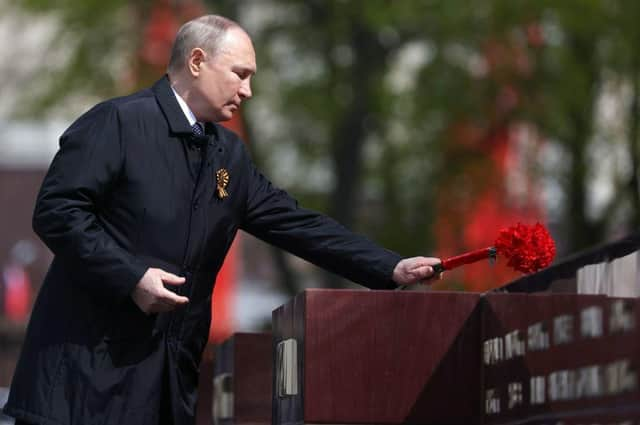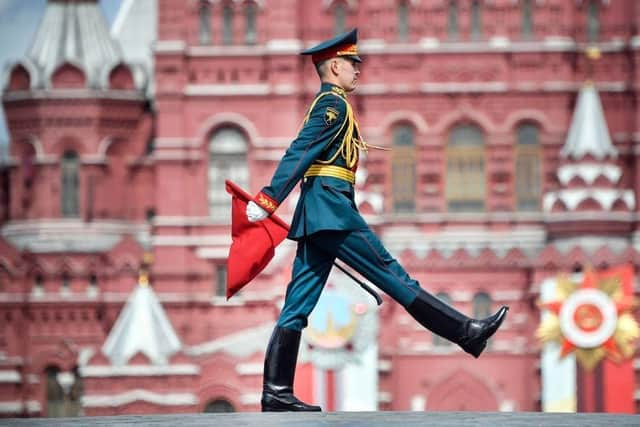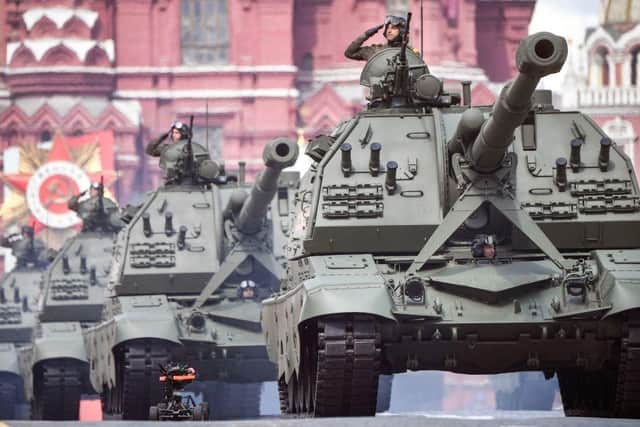Ukraine-Russia: What Vladimir Putin said in his Victory Day speech - and why it was not all threats


Putin painted a picture of Russia as a peace-loving, inclusive, accepting country that wanted to uphold positive values – but lamented his attempts to do so were being hampered by the West.
He talked about Russia’s aims to uphold “an international system of equality” and how Russia “respects the culture of everyone” and “always [tries] to find compromise solutions”.
Advertisement
Hide AdAdvertisement
Hide AdBlending history and the current situation, Mr Putin compared the 1945 victory to today’s situation.


He also spoke of American veterans whom he insisted had wanted to come to the Victory Day parade, but were “banned” from doing so. He said Russia was “proud” of American participation in the Second World War, as well as that of French, British and Chinese soldiers.
"We have a duty to remember everyone who won over fascism,” he said. “And make sure that the horror of a global war will not repeat itself again.”
The latter words could be taken as either a perhaps unexpected sign Mr Putin, like every other one of us, does not want World War Three. Or it could be seen as a threat.
Yet, contrary to expectations – UK defence minister Ben Wallace had trailed the speech as a potential announcement of all-out war – Mr Putin’s language did not show any signs of escalations of tension.


He continued to refer to the invasion, as he always has done, as a “special military operation”. Many international observers had expected him to declare a full mobilisation of Russian troops, which would be likely to spark widespread conscription. Neither did he declare any kind of victory, over the besieged city of Mariupol or territories in the eastern Donbas region.
He talked, as he has often done before, of liberating Russians in the Donbas and spoke of attacks on “our historical territories, like the Crimea”, while he was filmed laying flowers on memorials to 12 'Hero Cities' – an honorary Soviet title relating to the Second World War – which include Ukraine’s Kyiv and Odesa, as well as Sevastopol and Kerch in Crimea.
Heavy casualties in the recent conflict were acknowledged, but Mr Putin attempted to justify the invasion by speaking of a “growing threat” to Russia, claiming “other countries” had “threatened to use nuclear war”. Russia’s intercontinental ballistic missiles were on show as part of the parade, although the president stopped short of any threats of his own to the West, which have previously been thinly veiled, including a Russian state TV interview with foreign minister Sergei Lavrov, who warned the danger of a Russian nuclear strike was “serious” and “real”.
Advertisement
Hide AdAdvertisement
Hide AdRegarded as probably the most important non-religious holiday in Russia, the parade involved more than 11,000 Russian soldiers – perhaps tellingly, around 1,000 less than last year. Tanks drove in procession through Moscow’s Red Square. However, an aerial fly past was cancelled, apparently due to the weather, on a day when the skies were clear and wind speed was low in the Russian capital.
No foreign guests were present at this year’s celebrations – not even Alexander Lukashenko, the dictator president of Belarus and one of Putin’s few allies. The parade comes just three days after Mr Lukashenko admitted that the war had “dragged on”, in an uncharacteristically candid comment on the situation.
Previously, the event would have been attended by many global leaders – until 2014, when Russia annexed Crimea and entered Donbas, making any form of public allegiance with Russia’s military values an off-putting prospect for most countries’ heads of state.
The celebration goes by generally unnoticed on the global stage, with this year’s event catapulted into the spotlight for not what actually happened in reality, but what could have happened.
When it comes to Mr Putin, it is becoming ever clearer we need to expect the unexpected.
Comments
Want to join the conversation? Please or to comment on this article.
